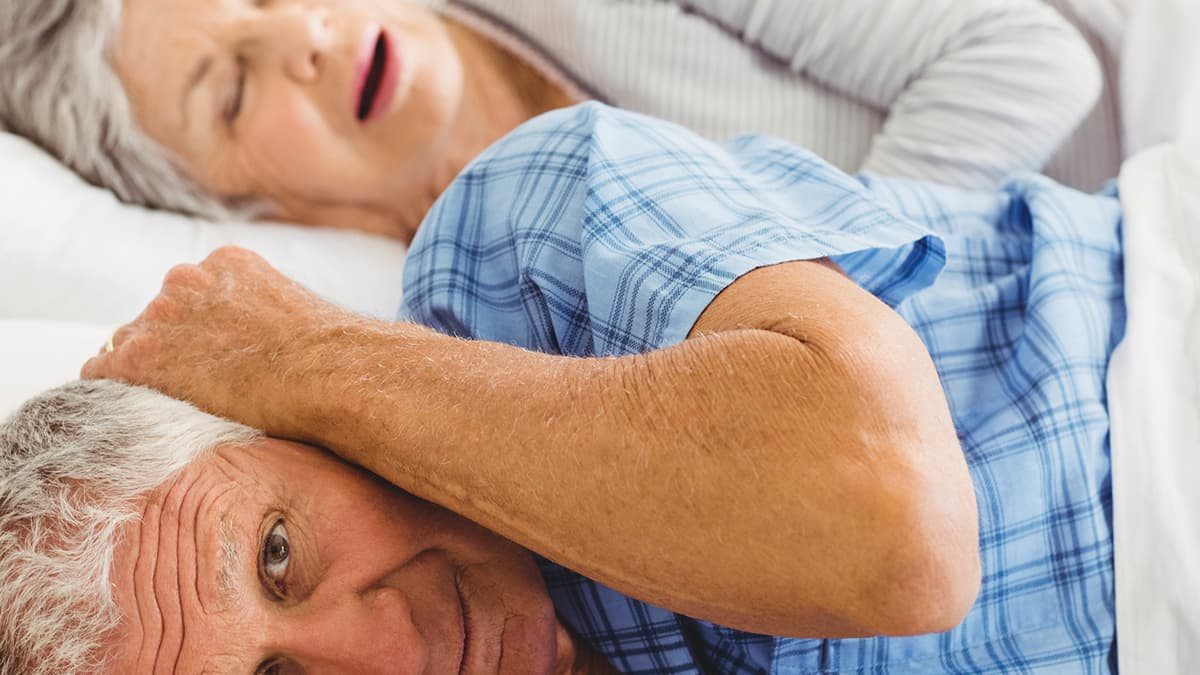A snorers uvula and soft palate - the tissue at the back of the throat - relax and vibrate during sleep.
For some, these throat muscles collapse around the tongue, blocking the airway for 10 to 60 seconds or more and causing a condition called sleep apnea.
For some, this blockage can cause them to awake 50 to 100 times a night which causes fragmented sleep and drowsiness in the daytime.
A doctor can prescribe medication to help prevent snoring, however some may keep you awake or inhibit the dream stage of sleep.
Spray with salt water
An over-the-counter saline spray will moisten mucus membranes in the nose, making it a little easier to breathe.
Be careful if you make your own salt water spray as too much salt might burn your nose.
Start a diet
If you are overweight or you need to lose a little bit, then going on a diet and lightening up may get you over your snoring and apnea.
Increased tissue in the neck and throat, along with poor muscle tone, constricts the air passageway.
Also, a large abdomen pressing against your diaphragm when you lie on your back decreases the size of your lungs and the amount of air you take in with each breath.
Elevate your bed
Raising your upper body, not just your head, can help minimise snoring noise.
Lay on your stomach or side
You may not store if you lie on your stomach or side. Put your arm under a pillow to steady your head.
Stop smoking
Smoking causes changes in the tissues of your respiratory system, which contribute to snoring.
The irritation caused by smoking, increases mucus production in your throat and nose and makes membranes swell, leaving less room for the air to pass.
Check your medication
Some over-the-counter medications affect the body in the same way that alcohol does.
Some cold cures, for example, contain muscle relaxants that can affect breathing.
People with apnea and snoring should always check with their doctors before using nasal sprays, decongentants or other over-the-counter medications.
Keep Trim
Lose weight if you need to.
Sing!
Think about taking up singing. Professional singers rarely snore and it's thought this could be use singing exercises the throat muscles.
Seek Advice
See your GP if the problem persists as you could have sleep apnea, which can be treated.

